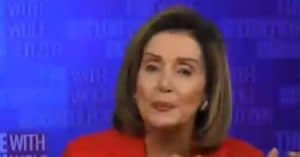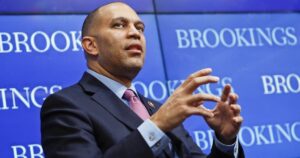Federal Judge to Release Key Report on Trump Case
A federal judge has given the green light for a key report's release involving the investigation of President-elect Donald Trump and the alleged interference in the election. Judge Aileen Cannon announced the decision on Monday and will also consider the future release of a second volume, touching upon different allegations.
A Florida judge has authorized the disclosure of investigative findings on election interference by Trump while contemplating a subsequent release on handling classified records, Fox News reported.
Chief U.S. District Judge Aileen Cannon has approved unveiling the first volume of the investigation led by Special Counsel Jack Smith. This investigation scrutinizes President-elect Trump's actions related to election interference. Initially, Cannon had halted the report's disclosure, responding to an urgent plea from Trump’s co-defendants, Waltine Nauta and Carlos De Oliveira, who aimed to prevent its public release.
Co-Defendants Tried to Halt Release
Nauta and De Oliveira's emergency motion sought to keep the investigation reports under wraps, triggering a temporary blockage. The defendants contended that the release could harm their chances in ensuing legal battles. However, on Monday, Cannon dismissed their claims, citing inadequate grounds for their requested injunction.
In her written statement, Cannon explained that Smith had previously faced restrictions preventing any distribution of the report beyond the Justice Department. Smith, tasked with investigating Trump, was temporarily bound from disseminating findings outside this federal domain.
Judge Decisions Align with Legal Precedent
The upcoming volume, anticipated on Friday, shifts focus to President-elect Trump's conduct regarding classified documents. Cannon's decision forms part of a broader legal context, where past presidents and their inner circles have also faced inquiries from special counsels.
Attorney General Merrick Garland's history of authorizing transparency in such matters includes previous reports from other high-profile investigations, like those conducted by John Durham and Robert Hur. These precedents may influence Cannon's subsequent considerations regarding the second volume's release.
Trump has criticized Special Counsel Smith’s work, calling it a "fake report." As Trump assumes his role as president-elect, current Justice Department guidelines indicate that prosecuting a sitting president is inherently complex. Consequently, the findings within Smith's report do not anticipate altering Trump’s legal status in the immediate future.
Trump Election Probe Suspended Post-Election
Following Trump’s re-election, Smith suspended any further investigative efforts. This pause aligns with the Justice Department's long-standing protocol not to bring charges against a sitting president. This procedural pause reflects a balancing act between transparency and respect for presidential office.
The first volume's disclosure presents a crucial opportunity to understand the intricate matters surrounding election interference. This narrative showcases America's intricate judicial balance when addressing allegations involving prominent political figures like Trump.
As Friday approaches, further judicial deliberation is expected on the second volume's release, revolving around confidential records mishandling. Unveiling these insights could shed light on procedures and decisions undertaken at the highest levels of the Trump administration.
Impact on Trump's Presidential Transition
Meanwhile, analysts and stakeholders are keenly observing these developments, gauging potential impacts on Trump’s forthcoming presidential term. This sequence of legal decisions could herald significant implications for presidential accountability and transparency.
The release timing coincides with a critical juncture as Trump's administration prepares for the transition. The intersection of legal scrutiny and presidential prerogative underscores ongoing tensions within America's electoral system.
As the nation braces for this report’s outcomes, unified attention converges on how these revelations will shape Trump’s presidency. Key stakeholders continue watching, recognizing the potential implications for future legal and political landscapes.
Historical Context and Legal Implications
Reports from special counsels often play a pivotal role in demystifying complex political and electoral narratives. They serve as historical records that clarify circumstances surrounding significant national events.
Observers from different ideological backgrounds are likely to dissect the reports thoroughly. Their focus will be on policy implications and historical insights that could influence American political discourse and governance practices.
Next Steps in Judicial Proceedings
Looking ahead, the coming decisions around additional document releases will be pivotal. They underscore the delicate balance the judiciary maintains in wielding transparency and upholding national confidentiality.
Cannon's rulings could set precedents impacting how similar cases may be handled in future administrations. These judicial conclusions hold importance not only for the current administration but for all future occupants of the highest office.
The impact of these releases, encompassing judicial, political, and ethical dimensions, resonates profoundly across multiple sectors of society. It remains a narrative not only of immediate interest but with enduring relevance shaping electoral and governance dynamics in subsequent years.




